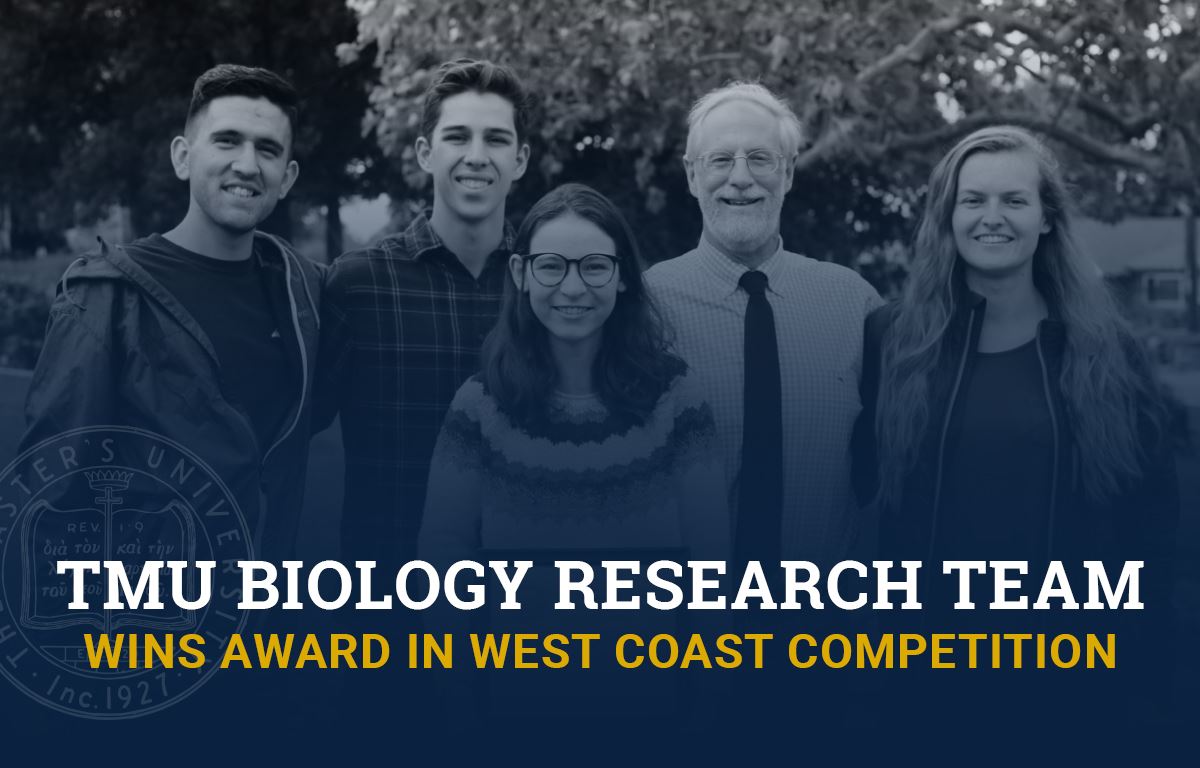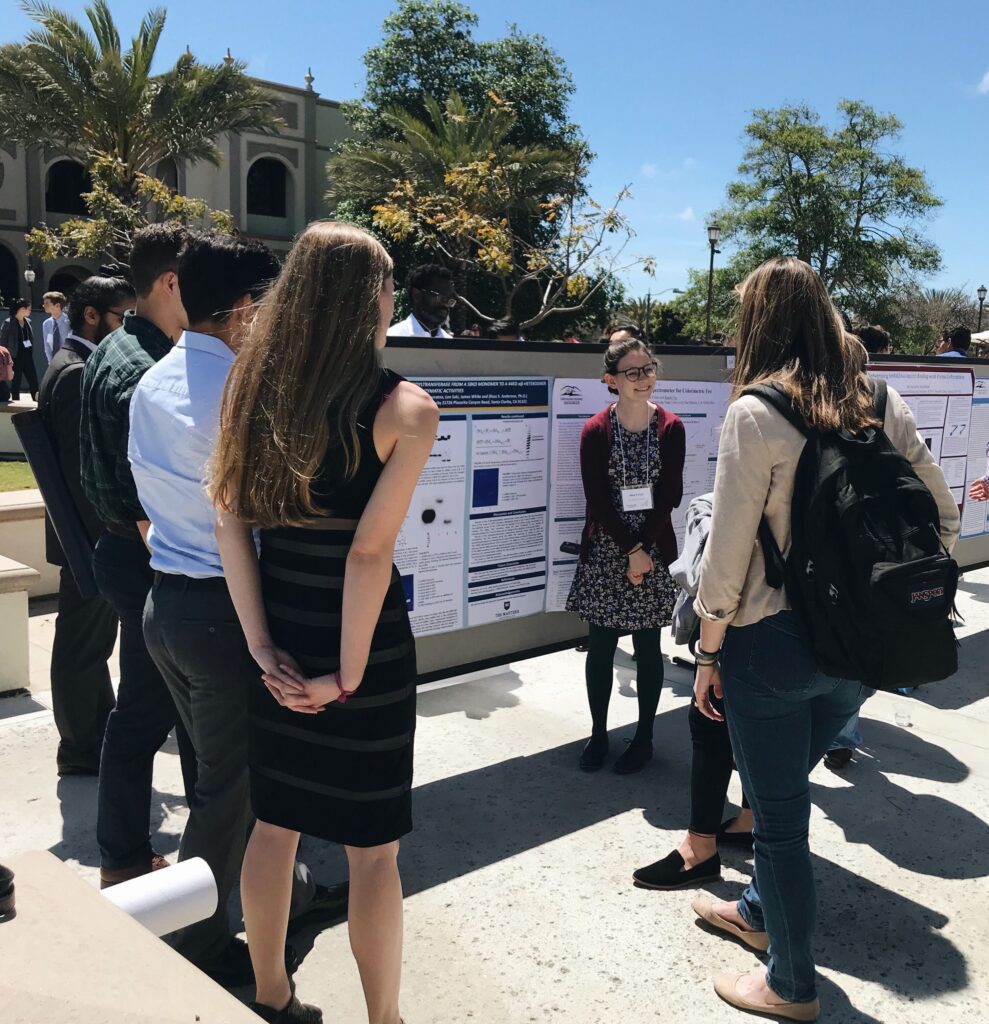
The Master’s University’s biology research team took the “Best Poster Presentation in Biochemistry and Molecular Biology” award at the annual West Coast Biological Science Undergraduate Research Conference.
The five-student team’s data stacked up against decades of research from universities like University of San Diego, Point Loma Nazarene University and University of California, Berkeley. The award, given to one team in each branch of biology, is a culmination of Dr. Anderson’s thirty years of research, and the team’s original findings.

Dr. Anderson, TMU Professor of Biochemistry and team leader, has spent the last five years alongside students, studying the Terminal Deoxynucleotidyl Transferase, Recombinant (rTDT) protein and its enzymatic activity. In proving the enzyme’s ability to do more activities than originally believed, the team has left the door open for continued experimentation.
Every biology faculty member at TMU is doing original research, incorporating students in their analysis and presenting at regional, national, and international science meetings. TMU research teams are voluntary and students like Alisa Kinzel ’20, the team’s presenter, join them to learn invaluable skills like teamwork and further their professional development.
“I like the idea of research and being on this team was fun. I love the idea of helping people, learning, and growing,” Kinzel said. “You go into things not knowing what the answer is going to be, but you get to problem solve and work with others to get the results you want.”
She also gets to work with and shadow Professors like Dr. Anderson, who has performed research for over thirty years. As a seasoned researcher, Dr. Anderson’s experiences at TMU are unparalleled.
“In the secular world, there tends to an element of cut throat character. They have to win,” Anderson said. “Here, when I chose Alisa to be the presenter, no one else griped. They were there to support her. Even though her name is on the plaque, they all recognize the team won the award.”
Kinzel echoes Dr. Anderson’s sentiment. “It’s great to be in an environment where people are humble enough to admit just how little we know and how much there is to learn,” she said.
There’s more research to be done on the rTDT protein. Dr. Anderson will work on compiling his findings this summer, in hopes of having them published in an international journal this fall, for researchers elsewhere to further experiment.

The Master’s University and Seminary admit students of any race, color, national and ethnic origin to all the rights, privileges, programs, and activities generally accorded or made available to students at the school. It does not discriminate on the basis of race, color, national and ethnic origin in the administration of its educational policies, admissions policies, scholarship and loan programs, and athletic and other school-administered programs.
21726 Placerita Canyon Road
Santa Clarita, CA 91321
1-800-568-6248
© 2025 The Master’s University Privacy Policy Copyright Info
| Cookie | Duration | Description |
|---|---|---|
| cookielawinfo-checkbox-analytics | 11 months | This cookie is set by GDPR Cookie Consent plugin. The cookie is used to store the user consent for the cookies in the category "Analytics". |
| cookielawinfo-checkbox-functional | 11 months | The cookie is set by GDPR cookie consent to record the user consent for the cookies in the category "Functional". |
| cookielawinfo-checkbox-necessary | 11 months | This cookie is set by GDPR Cookie Consent plugin. The cookies is used to store the user consent for the cookies in the category "Necessary". |
| cookielawinfo-checkbox-others | 11 months | This cookie is set by GDPR Cookie Consent plugin. The cookie is used to store the user consent for the cookies in the category "Other. |
| cookielawinfo-checkbox-performance | 11 months | This cookie is set by GDPR Cookie Consent plugin. The cookie is used to store the user consent for the cookies in the category "Performance". |
| viewed_cookie_policy | 11 months | The cookie is set by the GDPR Cookie Consent plugin and is used to store whether or not user has consented to the use of cookies. It does not store any personal data. |
Notifications